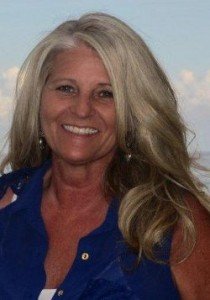 Senior Mortgage Consultant Kim Lenz, of ENG Lending is interviewed by speaker, bestselling author and entrepreneur Ken Sherman of Go Pro Local. Kim is mortgage banker/broker, and a loan officer. She’s been in lending industry for sixteen years in finance, and a loan officer for thirteen years. In that time, she has grown her business during the economic boom and through the collapse.
Senior Mortgage Consultant Kim Lenz, of ENG Lending is interviewed by speaker, bestselling author and entrepreneur Ken Sherman of Go Pro Local. Kim is mortgage banker/broker, and a loan officer. She’s been in lending industry for sixteen years in finance, and a loan officer for thirteen years. In that time, she has grown her business during the economic boom and through the collapse.
Kim is known in the industry as the go to person to get things done when others can’t seem to. In the interview, she discusses challenges and tips for those shopping for a mortgage in today’s economy and reveals her insight into the methods, mindsets and strategies that have made her so successful.
Ken: Kim, welcome to the show. We appreciate you being with us today. Kim, tell us a little bit about the type of clients that you typically work with.
Kim: I work with any client that needs any kind of mortgage-related needs for refinances, purchases, construction loans. Any type of mortgage need, I like to work with them to make sure that they’re getting the best deal possible, whether it’s provided by me or someone else.
Ken: You work with commercial and residential, then, both sides?
Kim: Yes, I do have a commercial background. I haven’t done commercial loans since the economy dropped off. I am strictly residential right now.
Ken: Kim I’ve heard about you helping prospective home buyers across the country. Do you mainly help customers just in Arizona, or are you nationwide?
Kim: I’m actually licensed in all fifty states, but more importantly, I’m experienced in all fifty states, so I know all the little quirky things that go on in escrow and the attorney states as well.
Ken: Can you share some examples of how that kind of experience can be such a benefit to your clients?What are some of the examples you have of where that’s really been a benefit for your client?
Kim: The fifty-state licensing comes in quite handy when I have a client that’s relocating and who is possibly looking to sell an Arizona home and wants to purchase in another state. When they’ve worked with me here in Arizona, and they want to stay working with me, they can do so without any problems. Another example is when I have clients moving to Arizona, and perhaps they want to refinance a home to pull out some equity to better position them for the purchase that they’re making.
As far as my experience, so often there are loan officers that, even though the entity that they work for provides them the fifty-state licensing without the experience, they often don’t know the transfer taxes in a lot of the eastern states, or the property taxes, or how to work with an attorney state, which requires both escrow and attorney work.
If you’re not aware of those things that happen in each individual state, and their lending guidelines, it can be very difficult at closing when a borrower goes in and they’re due a lot more money because of the transfer taxes. In Maryland, Connecticut, Florida, if you’re not aware of them and your client goes to title, thinking that they’re closing for a thousand dollars, and they get to the table and they owe six thousand dollars, it can get a little sticky.
Ken: Yeah, ouch! I’ve heard stories in the past, of you saving deals that looked like they were just going to go away. You were able to come in and make things happen. Do you have any insight into things you’ve done in the past that really made a difference for a client?
Kim: I think it really makes a difference in the relationships that I’ve built with the underwriters and the different departments. In a standard loan, generally about 23 people will touch your loan, and each person has an individual look at it. They might look at things a little bit differently, so it helps with the relationships that I’ve built with my underwriters, title officers, etc., that I can look at a deal, and maybe it’s been turned down, but there’s really some merit in the file. I’m really good at presenting comments and solutions and working with people that can help me get it approved for the buyer if there’s merit. I don’t give up.
Ken: All of those relationships really pay off when you’re able to draw on all of their experience and make things happen. Someone less experienced may not have all those connections, right?
Kim: Exactly. It’s as simple as, sometimes you have to take two bank statements to prove assets to close. Perhaps there’s a deposit that will require sourcing, and perhaps it’s cash and it can’t be sourced. You have to know what to provide and, if you can’t provide it, what you can provide support for those assets being used. It perhaps is maybe just as simple as a VOD, or talking with an underwriter who underwrites to the true guideline that’s presented on assets. It’s just knowing your guidelines and having the relationships to help you set a deal.
Ken: I’ve heard that you’re called a mortgage banker, and you’re also called a mortgage broker. I know you’re actually both, but for those that may not know, what is the difference between the two?

